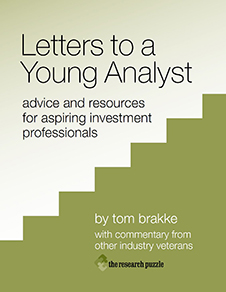
- Friday, December 12th, 2008
- the tide went out
-
We have all heard the saying, usually attributed to the Oracle of Omaha (but which I think had been in the vernacular before his first published use of it), that “you don’t know who is swimming naked until the tide goes out.” The receding market for risk has shown that there were a lot of nude bodies about.
The fun and games and frolicking around are but memories now, and the authorities are clearing the beach. Business models that relied on everything to go right had no chance when everything went wrong. That was true for the legitimate and illegitimate alike.
And so we see the consequences for the “near frauds,” the purveyors of investment products of various types now faced with the loss of business that comes from client dissatisfaction with getting something that wasn’t in the glossy brochures and PowerPoint presentations. And day by day we also are witness to the crumbling of schemes that went beyond run-of-the-mill hucksterism into thievery on a grand scale.
Since September, Minnesotans have been witnessing the unraveling of the empire of Tom Petters, who in a relatively short time went from selling stereos to owning Polaroid, Sun Country Airlines, and a variety of other businesses. While he awaits trial, several of his accomplices have pleaded guilty to a multibillion-dollar Ponzi scheme that funded Petters’ business purchases and his (so very un-Minnesotan) lavish lifestyle. The perpetrators include the son of a key player in the famous fraud ZZZZ Best (you can’t make this stuff up), who laundered money through various entities, including one next to a car wash a hundred yards or so from my office. The roster of apparent victims is made up of individuals, charitable institutions, and even some hedge funds, all of whom were being shown fanciful returns beyond the realm of reasonableness, supposedly based on the trading of surplus electronic goods. It was too good to be true.
Within the last few days, we have also learned of charges against Marc Dreier, the well-heeled owner of a 250-lawyer firm, and Bernard Madoff, whose securities-business résumé would inspire confidence all on its own. Unfortunately, that’s where the “con” in con game comes from, and while the size of the alleged Maddoff fraud boggles the mind, it differs only in scope with the games of the common grifter. At the core of the operation are the “marks,” vulnerable to dreams of riches and willing to plunk down cash without asking too many questions.
Another story this morning in the Wall Street Journal, this one about a mortgage-securities fraud, includes this paragraph:
“I am appalled at how easy it was for him to do this,” U.S. Attorney R. Alexander Acosta said. “You would think there would be more due diligence.”
Yes, you would. But due diligence takes time and is expensive, and the willingness to believe can be played by someone with an extraordinary willingness to deceive. When that happens and things go really wrong, it makes for salacious headlines and interesting reading (as long as it is someone else that got stung). However, the lessons are important for us all.
The time for exploring the details and asking the hard questions is before, not after. If you can’t do it or aren’t sure of the answers you receive, walk away. Then, when you stop by the beach to see what the commotion is about, you can just be an interested observer.
